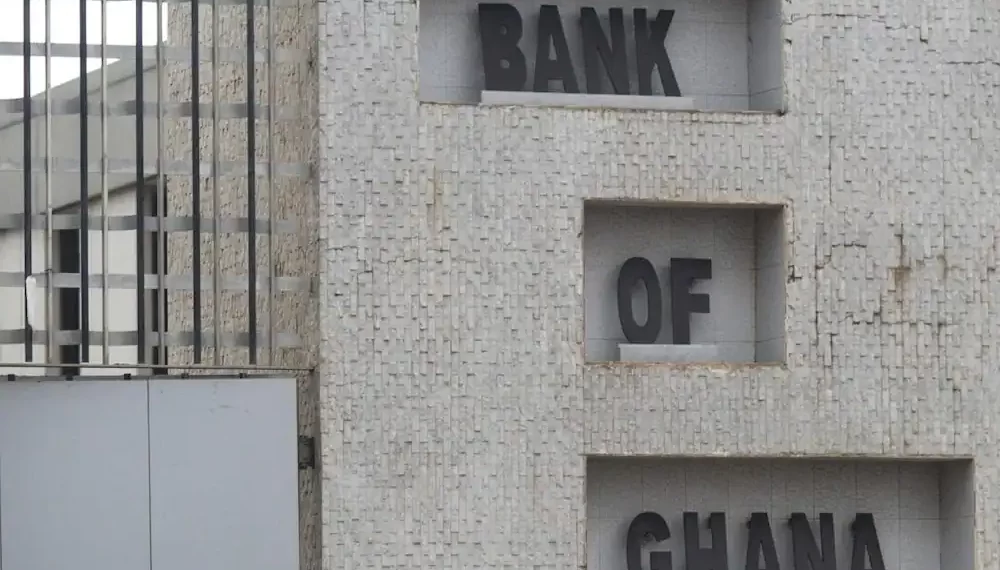The Bank of Ghana (BoG) has taken a decisive step toward improving transparency and market confidence with the introduction of a new Foreign Exchange Operations (FX) Framework.
This comprehensive policy shift marks a critical milestone in Ghana’s monetary policy, reinforcing the central bank’s commitment to maintaining macroeconomic stability under a flexible exchange rate regime.
The newly approved framework by the BoG Board seeks to clarify the objectives and guiding principles behind the central bank’s FX operations, bringing structure, predictability, and accountability to a market that has long been characterized by volatility and speculation.
At the core of the BoG’s new FX Operations Framework lies an unwavering focus on transparency. The Bank will now conduct its FX activities through competitive, variable-rate, fixed-amount auctions—a mechanism designed to ensure fairness and openness in the allocation of foreign exchange resources.
Auction amounts will be announced in advance, and results will be published on the same day, allowing market participants to make informed decisions. This move is a bold attempt to replace uncertainty with clarity, ensuring that the central bank’s interventions are predictable and rule-based rather than discretionary or reactive.
The BoG will also release aggregated monthly FX operations data within five business days after the end of each month. These reports will clearly distinguish between the Bank’s operational objectives, providing transparency into whether actions were aimed at reserve accumulation, volatility management, or market intermediation. This level of disclosure, the Bank believes, will strengthen public confidence and promote accountability.
Key Objectives of the New FX Framework
The new FX framework is anchored on three primary objectives designed to safeguard Ghana’s macroeconomic stability while maintaining the flexibility of its exchange rate system.
First, the Bank aims to support reserve accumulation as a buffer against external shocks and vulnerabilities. A strong reserve position enhances the country’s ability to absorb adverse external developments, such as commodity price shocks or sudden reversals in capital flows.
Second, the framework empowers the BoG to dampen excessive short-term volatility in the foreign exchange market. This means that while the exchange rate remains market-determined, the central bank will intervene when conditions become disorderly—helping to restore calm without imposing a fixed or targeted exchange rate level.
Third, the BoG will intermediate FX flows in a market-neutral manner, utilizing inflows from programs such as the Gold Purchase Programme and other export surrender requirements. This ensures that FX inflows are channeled into the market in an orderly and transparent way, supporting liquidity without distorting price discovery mechanisms.
Structured Discretion and Market Neutrality
A notable feature of the new framework is what the BoG describes as a “structured discretion-under-constraint” approach. This means that while the Bank retains some flexibility to intervene in the FX market, its actions will be guided by clearly defined rules and constraints.
Under this system, FX interventions will not aim to achieve a specific exchange rate level but will instead focus on correcting market failures, such as the absence of hedging mechanisms or excessive volatility driven by speculation.
The approach also aligns with international best practices, ensuring that Ghana’s FX market operations are consistent with its inflation-targeting mandate. By allowing market forces to determine exchange rates within a managed framework, the BoG seeks to strike a balance between flexibility and stability.
The introduction of a transparent auction-based FX system is expected to enhance market confidence and policy credibility. For years, market participants—ranging from commercial banks to importers—have called for clearer communication and predictability in the central bank’s FX actions.
With this framework, the BoG signals a shift toward a more rules-based operational culture, where decisions are communicated in advance and explained after execution. The Bank’s decision to publish pre-announced twice-weekly auctions for flow intermediation, along with same-day or prior-day announcements for volatility interventions, reinforces this commitment to openness.
This level of predictability is particularly critical for businesses that rely heavily on foreign exchange, as it allows them to plan better and hedge against currency risks. Investors, too, are likely to view the move as a step toward greater stability, potentially encouraging more capital inflows into the country.
Strengthening Ghana’s Exchange Rate Regime
The BoG’s new FX Operations Framework also underscores Ghana’s determination to strengthen the resilience of its financial system. By emphasizing rule-based operations, transparent reporting, and competitive auctions, the Bank is laying the groundwork for a more mature and responsive FX market.
Furthermore, the policy aligns with the broader macroeconomic reform agenda aimed at stabilizing inflation, restoring confidence in the cedi, and ensuring sustainable growth. It also demonstrates the Bank’s commitment to improving the efficiency and credibility of its monetary policy transmission mechanisms.
As Ghana continues to navigate global economic uncertainties, including fluctuating commodity prices and tightening global financial conditions, such policy innovations are crucial in safeguarding economic stability.
The Bank of Ghana’s decision to move toward a transparent, auction-based foreign exchange system marks a pivotal moment in the evolution of Ghana’s monetary policy. By introducing a rule-based, data-driven, and accountable framework, the BoG is not only demystifying its FX operations but also signaling a firm commitment to macroeconomic stability, market confidence, and sustainable growth.
In a market often clouded by speculation and opacity, this framework offers a refreshing dose of clarity, one that promises to strengthen Ghana’s exchange rate regime and support the nation’s broader economic recovery efforts.
READ ALSO:S&P Upgrade Fails to Lift Investor Mood As Bond Trading Shrinks by GH¢172m in One Week























